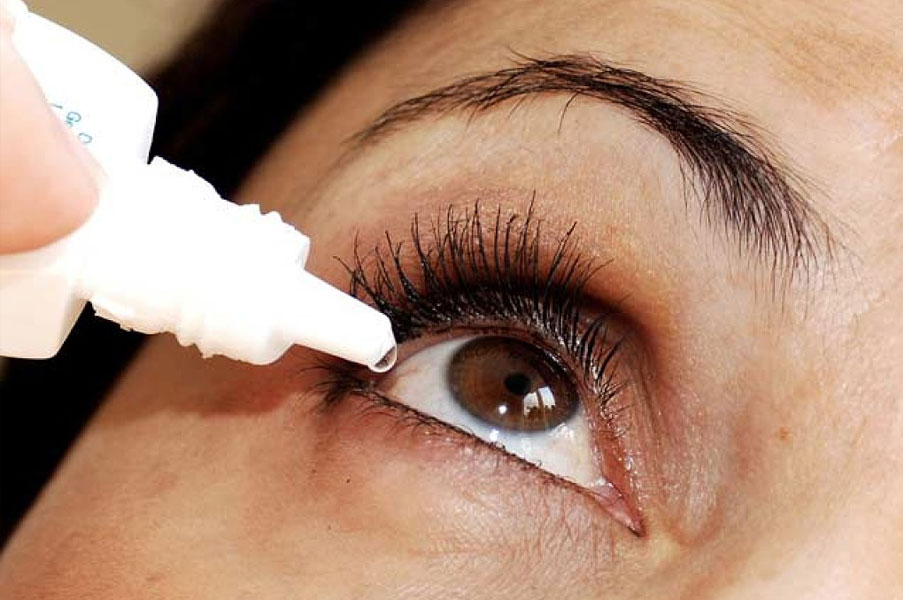Project Description
Dry eye is a common condition that occurs when your tears aren’t able to provide adequate lubrication for your eyes. Tears can be of poor quality and /or not enough quantity to keep your eye comfortable and moist. Dry eye is chronic and more prevalent with age.
Discomfort can range from mild and intermittent to persistent and disabling. You may experience dry eyes in certain situations, such as on an airplane, in an air-conditioned room, while riding a bike or after looking at a computer screen for a few hours.
Which are the symptoms of dry eye?
- A stinging, burning or scratchy sensation in your eyes
- Stringy mucus in or around your eyes
- Sensitivity to light
- Eye redness or persistente eye irritation
- Sandy-gritty sensation that gets worse as the day goes on
- Difficulty wearing contact lenses
- Difficulty with nighttime driving
- Intermittent blurry vision
- Watery eyes, which is the body’s response to the irritation of dry eyes
- eye fatigue
What are tears made of?
The tear film is composed of three layers. The outermost layer is made of oil, the middle is mostly water and the inner is a mucous layer. All three layers are required for comfort and good vision.
What are the causes of dry eye?
Dry eye can be caused by various conditions that affect the tear or meibomian (oil) glands of the eye, decrease corneal sensation, or from insufficient eyelid coverage when blinking and during sleep.
Causes of decreased tear production include:
- Aging
- Certain medical conditions, including diabetes, rheumatoid arthritis, lupus, scleroderma, Sjogren’s syndrome, thyroid disorders and vitamin A deficiency
- Certain medications, including antihistamines, decongestants, hormone replacement therapy, antidepressants, and drugs for high blood pressure, acne, birth control and Parkinson’s disease
- Laser eye surgery, temporary
- Tear gland damage from inflammation or radiation
Causes of increased tear evaporation include:
- Wind, smoke or dry air
- Blinking less often, which tends to occur when you’re concentrating, for example, while reading, driving or working at a computer.
- Eyelid problems, such as out-turning of the lids (ectropion) and in-turning of the lids (entropion)
Causes of imbalance in tear composition:
The tear film has three basic layers: oil, water and mucus. Problems with any of these layers can cause dry eyes. For example, the oil film produced by small glands on the edge of your eyelids (meibomian glands) might become clogged. Blocked meibomian glands are more common in people with inflammation along the edge of their eyelids (blepharitis), rosacea or other skin disorders.
Diagnosis of dry eye
Diagnosis involves identifying the duration and nature of your symptoms, measuring tear production, a microscopic evaluation of the tear glands and exclusion of other similar diseases. Sometimes samples of your tears and special eye staining is required to confirm the diagnosis.
Why do I sometimes feel like my eyes are overly watery, not dry?
People with dry eye have an impaired tear film protecting the eye. The eye reacts to the poor surface quality by producing excess amounts of emergency tears (the same as when we cry). However, emergency tears do not provide adequate nutrition and protection for the eye.
Treatment for dry eye
Proper care is essential to minimize the symptoms.
- Dry eye is treated with drops(artificial tears) and ointments that lubricate and provide nutrition. Preservative free drops are better.
- Eyedrops to control inflamation on the surface of your eyes that contain the immune-suppressing medication cyclosporine (Restasis) or corticosteroids. Corticosteroids are not ideal for long-term use due to possible side effects.
- Eyedrops made from your own blood. These are called autologous blood serum drops. They may be an option if you have severe dry eye symptoms that don’t respond to any other treatment.
- In some cases a tiny implant designed to limit drainage of tears, called a punctual plug may be indicated. These plugs are removable.
- Dietary supplements of Omega-3 fatty acids (fish oil and flaxseed oil) have demonstrated preventive and therapeutic qualities by increasing natural tear secretion and reducing irritation.
Cleaning and de-clogging your pores can further help to alleviate symptoms and minimize irritation. This is done by performing daily warm compresses and lid scrubs.


 EMERGENCIES 24h. AND APPOINTMENTS
EMERGENCIES 24h. AND APPOINTMENTS 